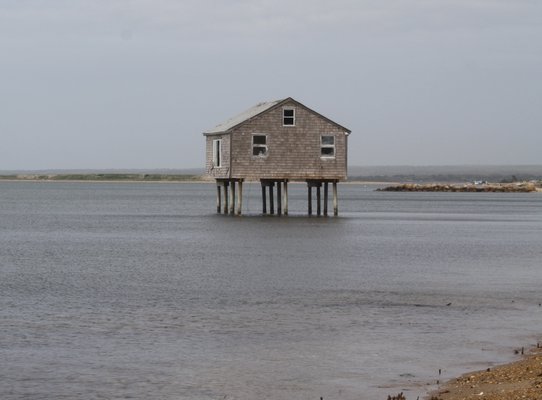
A home is a major investment as well as a place where families grow and memories are created. With all that on the line you want the mind-bending process of buying a home to go as seamlessly as possible, yet buyers don’t always do their research or ask the right questions.
Many have found out the hard way that “the big print giveth, and the small print taketh away.” Knowledge is king, and queen.
“Getting things squared away with the type of mortgage you can get is the first step,” said John Morocho, a relationship banker at Capital One bank in Amagansett.
When applying for a mortgage, Mr. Morocho suggests investigating whether there are any promotion offers in effect. “Sometimes there are deals offered where the bank helps with reducing closing costs,” for example, he said.
With a mortgage on track and a budget in hand, finding the right real estate agent is an important next step. First, ask the agent how many homes they’ve sold in the neighborhood you’re interested in.
“It helps, as you start the process, to have a clear definition of what you’re looking for in a home and the area you want to live in,” said Carol Abady, an agent at Brown Harris Stevens of the Hamptons in East Hampton. “This helps establish a strong dialogue with the agent, and it gives the agent a clear vision of what you’re looking for; all of this information can speed up the process and get you the home you want,” Ms. Abady said.
Ask your agent for references; testimonials are nice, but having contact with people who have dealt directly with the agent can give you further insight, and peace of mind.
As things proceed, certain practical aspects need to be taken into consideration, such as the physical condition of the house and where the house is situated. “First, you need an appraiser to inspect the home, and that generally costs about $450, either for an independent appraiser, or one that’s affiliated with a bank or mortgage company,” said Pamela Walsh, a sales associate at Town & Country Real Estate in Bridgehampton.
Some problems can’t readily be seen when you look at a particular home. “Make inquiries about the condition of the septic system and the date of its last inspection, and find out if the water source is well water or town water,” Ms. Walsh suggested. “Even though well water on Long Island is constantly being tested, and is potable, some buyers are overly cautious and prefer town water,” she said.
Ms. Walsh said often potential buyers forget to ask, “Is the house in a flood zone? Are there wetlands situated near the property?”
“Buyers should be aware that there is limited flood protection below ground, and although mechanicals like furnaces and hot water heaters are covered by insurance in a basement flood, contents are not,” noted Tim Brenneman, executive director at Cook Maran & Associates, an insurance company in East Hampton.
“Homes that aren’t situated near wetlands or the ocean are still at risk,” Mr. Brenneman said. “One bad storm producing a lot of rain gets the groundwater rising very quickly, which is especially relevant out here in the Hamptons,” he said. When Hurricane Sandy hit in 2012 portions of Napeague were closed off due to rising water in shallow water bogs and wetlands that straddle both sides of that portion of Montauk Highway.
The photo accompanying this article is located at the end of Mulford Lane in Amagansett. It was one of the first homes Mr. Brenneman personally inspected 25 years ago, and a framed photo of the house hangs in his office.
“I look at that photo every day” Mr. Brenneman said, “and I’m reminded of the first visit to that home, or to be exact to the water’s edge, I’ve actually never been inside the house. It was damaged by heavy storms in the mid-1990s, including Hurricane Bob.
“We often describe our business as a ‘problem-solving’ business,” he continued, “but that photo represents something I could not solve.”
Asked if there was anything in particular potential buyers should know about taxes, Ms. Walsh at Town & Country answered in the affirmative.
“Absolutely,” she said. “Hampton property buyers should know that at closing, they are responsible for not only the usual closing cost expenses, but for the Peconic land tax [for the Community Preservation Fund], and if the property is over $1 million, the mansion tax.”
“The Peconic Land Tax is a one-time expense, paid by the buyer at title transfer, or closing. It is 2 percent of the purchase price, and the mansion tax is 1 percent on homes over $1 million. So, if you’re buying a house for over $1 million, you will pay both the Peconic and mansion tax.”
This is just a sampling of some aspects of the buying process worth reviewing when looking into real estate on the East End. The more information you have, the quicker you can settle in and start making memories in the new topophilia you have found.